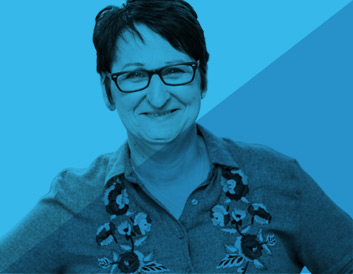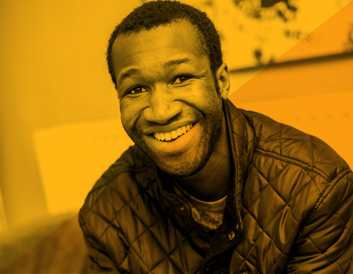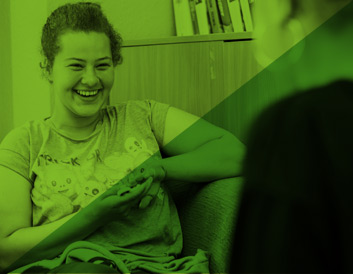Providing a safe place to live
Supporting Unaccompanied Asylum Seeking Children (UASC)
The following piece is drawn from an interview with Julie Cole, Project Worker. Julie has worked for Leicestershire County Council as a student social worker; and since she has been at Park Lodge has taken responsibility for support work with the growing number of young unaccompanied asylum seeking children aged 16 to 18 who come to the project. At the time of the interview there were ten such residents, coming from places where they were not safe, including Iraq, Iran, Afghanistan, Eritrea, Albania and Algeria.
Julie says she finds the work both challenging and enjoyable. It is challenging for a number of reasons. Firstly, the young people have to clear high hurdles to meet all the requirements and conditions necessary to be granted asylum in the UK, and they have limited resources with which to do this. Secondly, language barriers – few of those who come are able to converse or read English, and additionally some are not even able to read their own language – which can make it difficult to get a full and clear picture of the young people’s reasons for coming to Britain, the journey taken to get here and their plans for staying. And thirdly because the procedures established by the authorities for receiving and responding to claims for asylum are complex, time-consuming and demanding. For example, they require the applicant to recall events and information that may relate to times in the past when they were small children; this information has to be provided under pressure in a lengthy interview using an interpreter, and also with the help of a lawyer in a statement of evidence that has to be submitted within twenty days. Furthermore, the quality of interpretation can vary, some interpreters showing more empathy and being better at explaining the questions to the young person than others.
Examples of how inconsistency and confusion can occur through the interview process include being able to establish accurately the young person’s date of birth according to whether the Persian or the Roman calendar is being used; or describing the route taken to get to the UK when the young person may have been confined to a lorry for several days and weeks not being able to see anything of the countries they were passing through. And the authorities vetting the application are very quick to spot any discrepancies in accounts that may be given.
Julie currently has a caseload of eight young people. It is important to take time to befriend and gain the trust of the young people who are naturally anxious and wary about their situation, living in a strange country and having to communicate in a new language. Support may include accompanying the young person to a doctor’s or dentist’s appointment, attending legal appointments, in regard to their asylum application, helping them apply for a place on a college course, enabling them to attend a place of worship or some cultural event, and representing them at meetings with social workers and other professionals responsible for looked after children and young people.
Julie says that the young people are quick to thank her and appreciate the value of the support she gives them. They also value the freedoms they have living here in the UK, and the fact that their voice is heard, as sometimes they are coming from more closed families and communities. And some of the countries they come from are governed repressively and damaged by factional conflicts or war. And it is not just the physical damage but also the psychological damage that takes its toll, making the young people fearful, anxious and very careful about what they say. Of course they miss their families too but are nervous about contact being made with their families on their behalf for fear of what may happen as a consequence to those families back home.
The irony is that even in their precarious state as recent arrivals in the UK with their applications for asylum uncertain, they remain safer here than they would be in their homelands. And although their future here is cloudy at times, it may in the longer term be a good deal brighter. And for the moment they are grateful to have a safe roof over their heads, friends to make, opportunities to explore and the commitment of Julie and other staff to support them.



